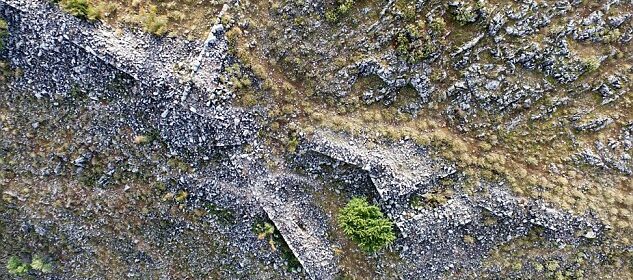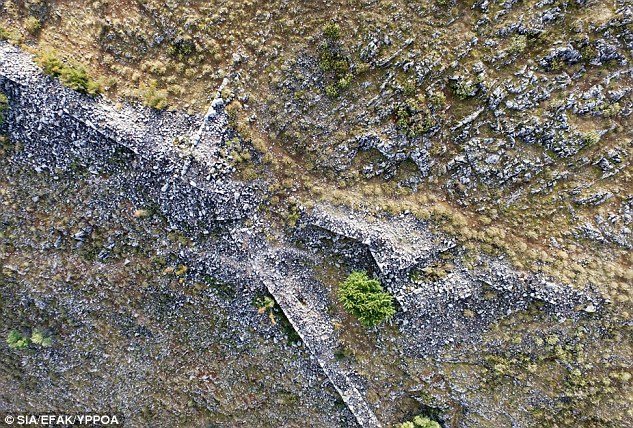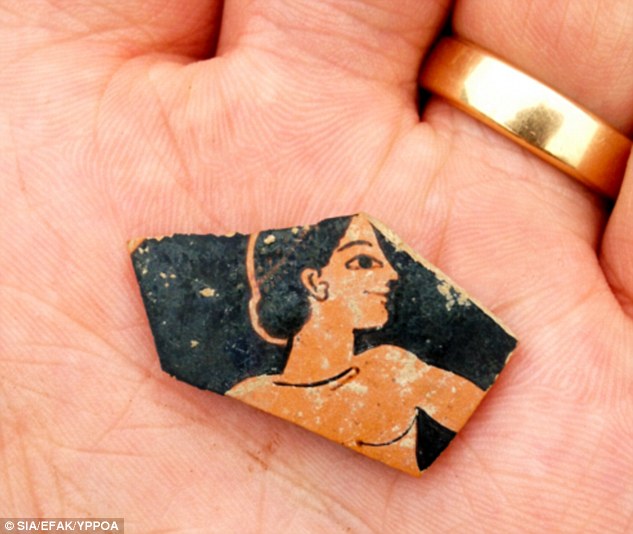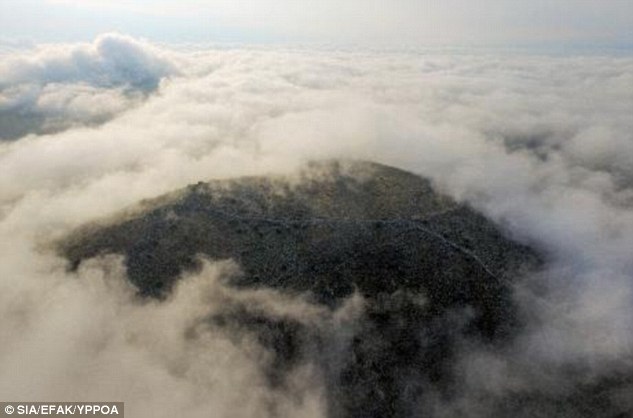Lost Greek city dating back 2,500 years discovered by archaeologists

Lost Greek city dating back 2,500 years discovered by archaeologists
In Greece, archaeologists found a 2,500-year-old lost settlement.
The team was exploring the ruins near Vlochós, a small village about 190 miles (300 kilometers) north of Athens.

The previously unknown city was discovered among ruins that archaeologists had long suspected were part of an unrelated settlement on a nearby hill.
But the team – a joint Greek-British-Swedish group including researchers from the University of Bournemouth and the University of Gothenburg – decided to investigate the hill further.
There, they found a long lost city hidden among the scattered stone.

‘We found a town square and a street grid that indicate that we are dealing with quite a large city,’ said fieldwork lead Robin Rönnlund, a PhD student in Classical Archaeology and Ancient History at the University of Gothenburg.
‘The area inside the city wall measures over 40 hectares [0.15 sq miles].’
The team stumbled upon the remains of towers, walls, and even city gates on the summit and slopes of the unassuming hill.
‘What used to be considered remains of some irrelevant settlement on a hill can now be upgraded to remains of a city of higher significance than previously thought,’ said Mr Rönnlund.
‘A colleague and I came across the site in connection with another project last year, and we realised the great potential right away.
‘The fact that nobody has ever explored the hill before is a mystery.’
Hardly any of this is visible from the ground below, which may explain why the ruins have remained undiscovered for so long.

In an attempt to preserve the remains as best they can, the researchers hope to avoid excavation and analyse the ruins using ground-penetration radar instead.
During the first two weeks of their work, the team found ancient pottery and coins dating as far back as 500 BC.
The city appears to have been abandoned around 300 BC, but had been flourishing in the 200 years prior.
Mr Rönnlund speculates that Roman conquest of the area may have driven the city’s inhabitants from their homes.
Further investigation of the ruins could provide important clues as to what happened during this violent period in Greek history.
‘Very little is known about ancient cities in the region,’ Mr Rönnlund said.
‘Our project fills an important gap in the knowledge of the area and shows that a lot remains to be discovered in the Greek soil.’